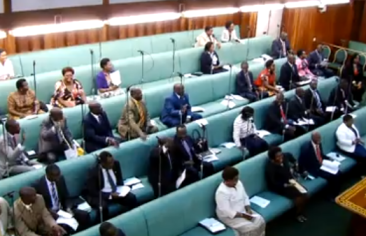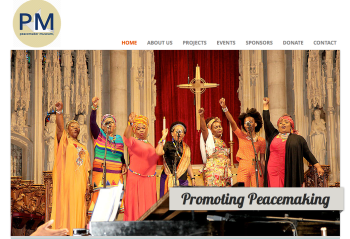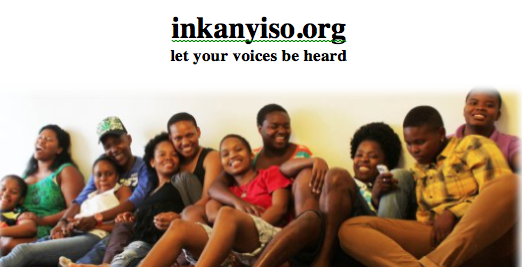By Melanie Nathan, January 09, 2014.

Ugandan Parliament did not have a quorum when passing the AHB
The Ugandan parliamentary cabinet chaired by Prime Minister Amama Mbabazi has agreed at a meeting in Kampala to hold a NRM (party) parliamentary Caucus meeting to review the recently passed Anti-Homosexuality Bill and determine its position. It is clear that the ruling party and cabinet realize that the Bill could be a severe setback for Uganda in its foreign relations, and that the consequences could be dire.
It is also clear that the manner in which the Bill was voted upon, in secrecy, without its usual placement on the Parliamentary order papers, resulting in a lack of a quorum, could be problematic as to legitimacy. We have received reports from Uganda that there was not yet going to be an official statement on this and concern expressed of competing interests in that the Minister of Ethics and Integrity, Fr Simon Lokodo and NRM ‘s Parliamentary members, could issue contradicting statements.
“The minister was reminded about the principle of collective responsibility while NRM MPs were also cautioned about the statements they make in their constituents on the Bill. We are taking the matter to the Caucus so that we move in unison,” a source told the Ugandan press.
According to the Prime Minister:
“The “reckless” statements by the MPs were inciting the public against the Executive and the international community. The meeting then resolved to summon the caucus as soon as possible and explain to them the current “crisis” so that they speak with one voice. Other sources said the same matter shall be discussed at the coming Kyankwanzi meeting.”
“The Bill is a foreign policy issue and a big matter in how we relate with the rest of the world,” the Prime Minister was quoted saying.
The ministers reportedly listened to the premier’s lecturer without opposing voices. Fr Lokodo being the Ethics Minister has consistently been one of the proponents of the Bill.
He reportedly told Cabinet that it will be a big disappointment to Ugandans if the President does not assent to the Bill which is already an Act of Parliament. He, however, declined to speak to the press about the Bill. However President Museveni may well find himself in a conflicting position as if he assents to the Bill he will be facing enormous international opposition, by many who deem the Bill to be contrary to Uganda’s international human rights obligations and also he risks challenges in local Ugandan courts that could render the Bill unconstitutional.
Addressing the envoys attending the Biennial Ambassadors’ Conference on Monday, Mr Mbabazi told Uganda’s foreign envoys that the ruling party’s Caucus in Parliament will review the Anti-Homosexuality Bill passed by Parliament late last year before the President has the opportunity to finally assent to it.
Earlier, President Museveni, who can choose to assent to the Bill, but who has no power of veto, was quoted in a statement issued on Christmas Day saying before assenting to the Bill, he would first go through the specifics, adding that if he finds that “it is not right” he would send it back to Parliament. If the caucus was savvy it would recommend that the President does not assent to the controversial Bill and that when it is sent back to Parliament, it be scrapped for lack of expediency.
There is indeed an opportunity for MPs to take a position to turn their backs on the Bill if returned to Parliament. Notwithstanding the popularity of the Bill and the huge anti-gay sentiment in Uganda, surely the MPs have the foresight to see that the harm in implementing the Bill will far outweigh what they believe its purpose to be. There is really no realistic or prudent need for the Bill, even if the myths and lies upon which it is based were to be believed. Homosexuality is already criminalized and the Bill serves no purpose that could possibly justify the huge problems its passage will cause for Uganda. Many countries will consider cutting AID to Uganda, there will be tourist and corporate boycotts of Uganda if the Bill is made into law and MPs who vote for it may be banned from obtaining visas to countries such as the U.S.A. It is clear that if passed, the international community will rise against Uganda to promote its isolation.




















 PoochParkWear customizes hoodies and t-shirts, the good, the naughty, the in between, whether proud or quirky let them be seen. We also offer biker jackets, croc or pleather collars, a variety of collar charms, and our special Zinja beaded collars made by a co-op of HIV-positive South African women, the Sisonke women who weave the beads onto the collars.
PoochParkWear customizes hoodies and t-shirts, the good, the naughty, the in between, whether proud or quirky let them be seen. We also offer biker jackets, croc or pleather collars, a variety of collar charms, and our special Zinja beaded collars made by a co-op of HIV-positive South African women, the Sisonke women who weave the beads onto the collars.

Reblogged this on It Is What It Is and commented:
Here’s hoping some have common sense!!
The same continent that produced Nelson Mandela has also produced thousands of bigoted, do-nothings…The people in control, the ones there that could step up & say, “wait a minute- this isn’t right”–> will not do so for fear of repercussion. How can this fear & this stranglehold be turned around?
It’s all well & good to say that Uganda lawmakers are re-thinking the aftermath of their horrid little bill in the world-wide scheme of things- but how to get the Mandela’s of Uganda to step up? It seems that it takes this sort of internal movement in some countries in order to effect any real change.